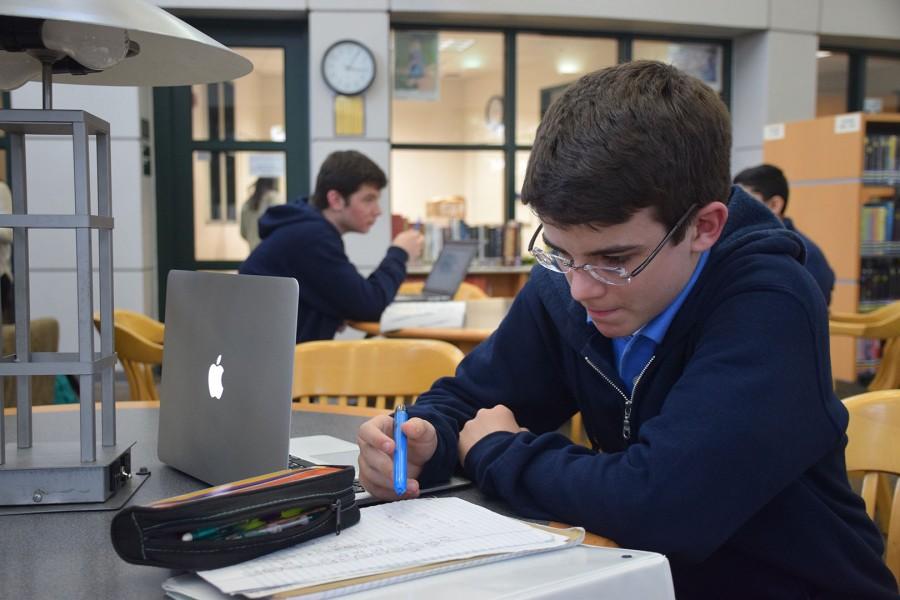According to the Human Rights Campaign, 16 anti-LGBTQ+ bills were enacted in 2021, surpassing 15 bills in 2015. In 2022, the fight for positive representation of LGBTQ+ people now faces legislation intended to stop education about the community from happening.
The Parental Rights in Education Bill, colloquially known as the ‘Don’t Say Gay’ bill, was introduced by Florida Representative Joe Hardings and has paved the way for an uncertain future with its signing on March 8. According to flsenate.gov, the bill states that “Classroom instruction by school personnel or third parties on sexual orientation or gender orientation may not occur in kindergarten through grade 3 or in a manner that is not age-appropriate or developmentally appropriate in accordance with state standards.” If parents learn that an educator has violated this rule, the school district can be sued.
The bill’s wording reveals that explanations of sexual orientation and gender are not the focal point; it is anything that could be connected to said topics. Reading a book about a non-heterosexual couple or a student mentioning their parents who are the same sex could cause a parent to take legal action.
Defenders of the bill are also quick to point out that it only applies to kindergarten through third grade. However, the text says “…or in a manner that is not age-appropriate or developmentally appropriate in accordance with state standards.” With this, the bill can be applied past kindergarten through third grade, and all grade levels are at risk of this censorship.
Not only this, but the legislation mentions state standards on sexual orientation and gender orientation, but such standards do not exist. As a result, teachers may be unsure of what they can safely discuss without any references to check.
While the ‘Don’t Say Gay’ bill will not directly impact Trinity because it is an independent private school, the question of what is appropriate for students to discuss in classrooms is still relevant. Private schools can apply guidelines similar to those for public schools, or parents would expect private schools to go along with nearby school districts. English teacher Hannah Parker worked in a Seminole County public school and did an internship at a charter school. From that experience, she knows how bills just meant for public schools can spread over to private ones.
“I think that a lot of private schools tend to follow some of the mass expectations of public schools,” Parker said. “We see that even now with Trinity. We follow Seminole and Orange county calendars.”
According to Parker, what the school decides to implement depends on the bill and what the bill plans for the future.
At Trinity, while discussion of topics about sexual orientation, gender identity, or the history of the LGBTQ community are not a part of the curriculum, they can arise naturally as related to the subject.
In history classes, students are taught about Roman and Greek civilizations and how they were accepting of homosexuality in some contexts. In AP US History, LGBTQ rights arise as part of the overall Civil Rights movement of the 1960s. The bill could make teaching about ancient civilizations and time periods difficult, leaving teachers and administrators to navigate dangerous waters without guidelines. To avoid this, a school’s administration might tell teachers not to bring up homosexuality or gender in class to steer clear of legal action from parents, which prevents students from getting all the information they need about the topic.
“I think in literature classes, it’s so easy to talk about a wide variety of ideas and a diversity of topics,” English teacher and sponsor of Diversity Club JJ Stroup said. “I don’t, as a teacher, do it through individual students’ lives or my own life.”
The legislation is worded vaguely, but its intent is clear: to scare teachers into silence with the threats and leave LGBTQ+ students alone in the dark, especially if their loved ones aren’t supportive. LGBTQ+ topics do not have to have an elaborate approach but rather as a normal concept similar to how society accepts heterosexual marriage.
“You don’t have to make [conversations about LGBTQ+ topics] complicated,” junior and one of the leaders of Diversity Club Lainey Wilemon said.
The legislation aims to silence conversations about LGBTQ+ culture and history, but it also reinforces the dangerous belief that outside sources influence LGBTQ+ identities instead of being an integral aspect of that person. It implies that anything other than heterosexuality is inappropriate for students and leaves LGBTQ+ youth with an increased feeling of isolation.
“[The Don’t Say Gay bill] seems like an extreme reaction to changing American culture and society,” Stroup said. “It seems that when we have momentous change, there’s always a pushback.”
A lack of conversations about LGBTQ+ topics can have devastating effects, as LGBTQ+ youth are already at high risk for mental disorders and suicidal thoughts. According to the Trevor Project, a nonprofit organization focused on preventing suicide attempts for the LGBTQ community, LGBTQ youth are four times as likely to have suicidal thoughts and make a plan than their straight peers. It is essential to show students, even at a young age, that non-heterosexual and cisgender identities are conventional so they do not grow up feeling alienated.
Aside from simply giving LGBTQ+ people a place to belong, classroom conversations about the community are hospitable to students with parents who are not heterosexual. According to The University of California, Los Angeles (UCLA), 114,000 same-sex partners raise children in the United States. In addition, 24% of female same-sex couples and 8% of male same-sex have children. LGBTQ families exist, and the students part of said families need to understand that their family is no different from a heterosexual one.
“We have openly queer senators and legislators,” Stroup said. “We have students who at a younger age are feeling that they are comfortable enough to say ‘this is me,’ or ‘this might be me.’”
Denying students the chance to learn about their culture and history in a safe environment is a horrifying reality where they are told that being who they are is abnormal when they should be embracing their identities. Figuring out your identity is already a tumultuous path— and making the journey darker is cruel.










